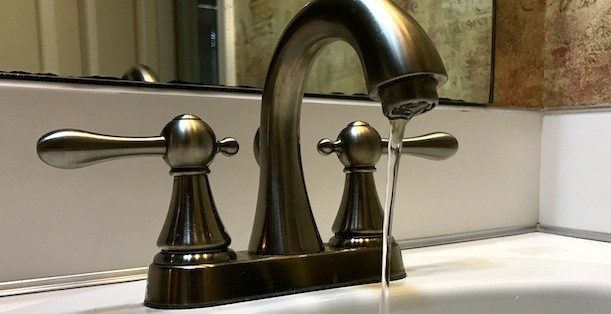Fort Smith Board backs away from raising water rates to cover costs
by April 16, 2024 8:55 pm 747 views

The Fort Smith Board of Directors tabled an ordinance during its meeting Tuesday (April 16) that would raise water rates in the city in order to have more time to study the situation.
The proposed ordinance would change the rate structure by taking the residential rate structure from three tiers to four tiers; consolidating the industrial rate from two tiers to one tier; establishing rates for contract water users north and south of the Arkansas River; and establishing a surcharge of 1.5 times the normal rate for retail customers outside the city limits, according to a memo on the plan from Lance McAvoy, director of utilities.
“The water rate increases for the first year are needed to cover both operating cost and debt service ratios needed to comply with the bond covenants,” McAvoy said.
The city hired Burns and McDonnell Engineering to do a water rate study in 2023. David Naumann, with Burns and McDonnell Engineering, presented the study to the board of directors in December and returned April 9 with further analysis. Naumann said with the water and sewer department’s approved budget in 2024, the department will have to dip into the department’s reserve funds to cover expenses this year to the tune of approximately $8 million.
Naumann’s presentation suggested that the city look at a rate increase that would raise rates for residential, retail, industrial, outside of city and contract users. The goal, according to the presentation, is to develop a pricing of services that reasonably reflects the level of service provided.
Directors voiced concern that residents would be shouldering the bulk of the increased rates while the city has not addressed spending or other issues with the water system. Board members said they think the utilities department needs to cut spending, noting that they do not feel comfortable with putting in more meters as well as other spending while asking for a rate increase.
“Bring me a (rate schedule) that is fair an equitable and reduce spending, and I’ll consider it,” said Director Kevin Settle, noting that contract customers use more water than Fort Smith residential customers but pay less of the cost of the water use.
There was also concern raised about the amount of unaccountable water. The city reported that 35% of the water treated and sent to transmission was not billed and, therefore, was unaccountable. That includes water that is lost due to leaks and line breaks, water used for flushing fire hydrants and for fighting fires, McAvoy said.
“That’s 6 million ccf. There isn’t a rate on the chart for a customer who uses that much. That is lost revenue that we need to get fixed,” said Director Neal Martin.
Martin said it was the responsible thing to “get our house in order,” look at all unnecessary spending in the department and make sure all the rates are fair and equitable based on use before moving forward.
Director Lavon Morton said that while it was wasted expenses the unaccounted for water was not lost revenue because customers are paying for all water that goes through their meters.
“We’re billing for all that goes through the meter. If we want to hire Water Company of America to find if we have any meters that aren’t being read properly or billed properly, that’s where you find lost revenue. The unaccounted for water isn’t lost revenue,” Morton said.
Morton proposed setting new water rates, which would mean increased rates for everyone over the next two years. He does not think the board needs to discuss proposing a sales tax to help raise water department funds. He said that not raising rates shows the Environmental Protection Agency and the Justice Department that the city is not being responsible and is not willing to charge customers what water costs.
“Burns and McDonnell, the consultants we hired, stood right here and said it costs $8 million more … to produce the water we are selling than we are getting in revenue,” Morton said. “What we are doing here, what we are talking seriously about here, is putting off any increases for Barling, Van Buren, … and all industrial, all commercial customers … Maybe we should table this, but to sit here and go through this whole year, honestly to go past July, and not take some kind of action on these rates, we are not doing our job for the people or the businesses here or the military or the Chamber of Commerce or any other organization trying to move this city forward. We are holding it back because we are selling water for less than what it costs us to produce it.”
Along with initiating a rate increase, Morton suggested forming a utilities oversight committee made up of two board members and three citizens who met monthly to make sure the utilities department was running efficiently or to dedicate a special study session a month to the oversight of utilities.
The board voted six to one to table the subject until after a study session on water use and rates with Director George Catsavis voted against tabling the decision on the rates. Catsavis said earlier in the meeting that he was against raising rates for residential users.
